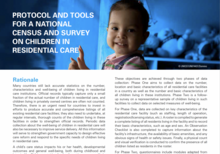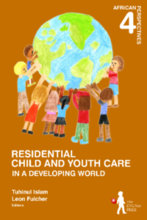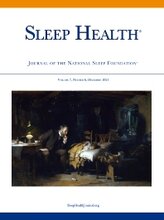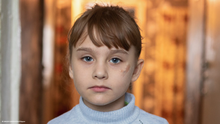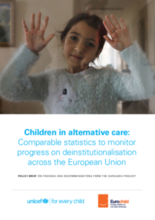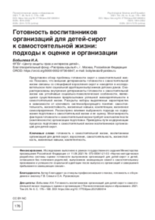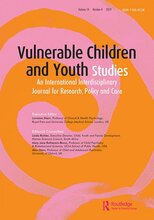Displaying 111 - 120 of 1510
This protocol for data collection on children living in residential care facilities (RCFs) aims to provide governments with clear guidance on recommended actions and steps for undertaking a census to map and enumerate such facilities and the children living in them.
The Data and Analytics Section at UNICEF Headquarters developed a data collection protocol and tools for conducting a census of residential care facilities, the enumeration of children, and a survey of child well-being that can be replicated and adapted in a variety of country contexts.
This is a comprehensive collection offering accounts of “first hand” lived experiences of young people growing up in some form of residential child and youth care in 19 African countries.
The goal of this Call to Action is to draw attention to the sleep health of children residing in alternative care settings. It highlights the need for a more robust evidence base to address major knowledge gaps and outline concrete steps toward building future promising sleep health-promoting practices and policies supporting children residing in alternative care settings.
The DataCare Project was launched by Eurochild with support from UNICEF in March 2020. The project aims to carry out a comprehensive mapping of child protection data systems across the 27 Member States of the European Union (EU) and the UK. In addition to providing an overview of the situation of children in alternative care in Europe, this project aims to inform EU efforts to agree to comparable benchmarks and indicators to monitor progress in child protection reforms across Europe.
This policy brief summarises the policy context, as well as the key findings and recommendations from the analysis of the national responses to the DataCare survey across Europe. More detailed information can be found in the full research report: Better Data for Better Child Protection Systems in Europe: Mapping how data on children in alternative care are collected, analysed, and published across 28 European countries, which includes a full set of country profiles.
This video case study was developed as a part of the Transitioning Models of Care Assessment Tool training package. It is 1 of 8 video case studies exploring different aspects of learning on transitioning residential care services. To access the full set of case studies or the training package, visit the BCN Transition Hub.
These video case studies were developed as a part of the Transitioning Models of Care Assessment Tool training pa
Представлен обзор проблемы готовности сирот к самостоятельной жизни. Показано, что внешние детерминанты готовности к самостоятельной жизни связаны со спецификой взросления сирот и находятся в исследовательском поле социальной адаптации выпускников детских домов.
Low readiness for independent living is what underlies the problems of social adaptation in children and adolescents from orphan organizations. This review explores how scientists and practitioners interpret this very concept of readiness for independent living.
The purpose of this article is to describe the process of testing and piloting the UNICEF protocol on children in residential care in three countries: India, Ghana, and Kazakhstan.


